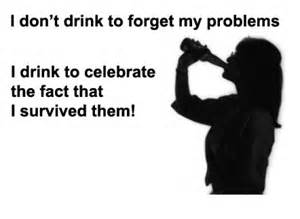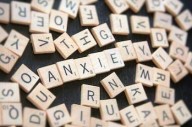After being surrounded by friends who are taking part in Dry January and being unable to avoid the boundless news coverage on the government’s new alcohol guidelines, it seems how much alcohol we consume is a hot topic. Both the New Year detox and the state recommendations are primarily concerned with the detrimental effects alcohol can have on physical health. The updated guidelines use new scientific evidence to back their weekly allowances, claiming studies have shown that if these new limits are exceeded people are at much greater risk of getting cancer and other serious illnesses. The long-tern effects of drinking are visibly mirrored in the immediate after-effects of excessive alcohol consumption. The words ‘I’m never drinking again’ are heard all too often on the first day of the year from the feeble shells of humans who shuffle out of the bathroom with weeping eyes that mourn the clear-headed, stomach-settled beings they were the day before who felt invincible in their 80s costume whilst downing shots and doing karaoke. Give it a week, though, (or for the strong, a month), and the wine will slip back down nicely, the New Year hangover as much of a blur as the journey home the night before. I know, as I’ve done this many a time myself. For me, though, alcohol is not just a poison (well someone had to use that word) that damages my physical health, it has a much greater effect on my mental health.
![drink_me_calligram_by_lunitaire-d4u6h24[1]](https://workingwithanxiety.files.wordpress.com/2016/01/drink_me_calligram_by_lunitaire-d4u6h241.jpg?w=295&h=524)
As someone who suffers from Generalised Anxiety Disorder (GAD) and clinical depression, I have a very mixed relationship with alcohol. Sometimes I get so sick of worrying about everything I just want to have a drink and have my hardest decision be whether to dance some more or get to the pizza takeaway before it shuts. I can see how it could be very easy to use alcohol as an ‘escape’, but thankfully I have never gone down that path. I’ve had periods in my life where I would go out and drink too much, but I think most people have done that. Over the last few years, however, I’ve had many more periods when I’ve stopped drinking altogether, as even one drink could cause me to wake up the next morning and have a massive panic attack. At that point in my life I just knew it wasn’t worth it. Anything that you can do to stop yourself having a panic attack, you will do – believe me. Whether it’s avoiding certain places, not eating too much so you don’t feel too full, only wearing t-shirts so you don’t get too hot which could bring one on. So avoiding alcohol is a no-brainer. That’s not to say it’s easy though.

When I’m not drinking I don’t miss the taste of alcohol (like I would chocolate) but the sociability of alcohol is hard to deny. It’s very sociable to drink but it’s not very sociable to have depression. I have struggled with this issue a lot. If I take the decision not to drink on a night out (because I can’t bear the thought of the panic-stricken hangovers the day after) I can sometimes feel like I’m not a proper part of the night if everyone else is drinking. I’m more a listener than a talker and I’m the type of person who would come back from the toilet and loiter on the outside of the circle unable to break my way in. If I was drinking, of course, I would probably nip my friend’s ass or sling my arms round someone’s shoulder and get in on the conversation. Anxious people just don’t do that though! So once someone’s noticed me stood behind them and invited me in I smile along as my mind careers down self-pity alley. I’ll attempt to tell a story that relates to the topic of conversation but will have trailed off before I’ve even set the scene. Next thing I know, I’ve turned in on myself, convinced myself no-one likes me and will probably end up in tears in the bathroom.
![when-you-drink-alcohol-you-are-just-borrowing-happiness-from-tomorrow-439[1]](https://workingwithanxiety.files.wordpress.com/2016/01/when-you-drink-alcohol-you-are-just-borrowing-happiness-from-tomorrow-4391.png?w=960)
I’m in quite a good place at the moment and can have a drink or two (could be more, who’s counting!) without having any panic attacks the next day. I still get the hangovers – really never been good with them – but if I’m not panicking I’m happy. It also makes it easier for me to socialise on the night if I can have a drink or two – suppose it’s the camaraderie of it all. Saying all this, I had a few too many on New Year’s Eve and found myself getting rather emotional – something I then fretted over the next day, embarrassed and worried about what everyone would think. Drinking alcohol when you suffer from mental health issues is always going to be hard but society has made it pretty damn hard for introverts like me not to drink alcohol in social situations. There has been quite a lot of outrage at the government’s new reduced recommended allowances with people arguing they are being controlled by a nanny state and that people in the past used to drink all the time and they were fine! In my opinion the best guidelines to follow are your own, don’t be afraid (despite the social pressure) to stop drinking if you feel it is damaging your physical and/or mental health, but also don’t be afraid to have a few more drinks than you are ‘allowed’ every now and then – you only live once and as long as you’re happy that’s all that matters.

